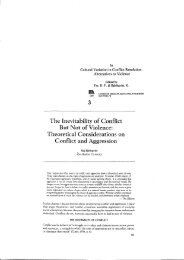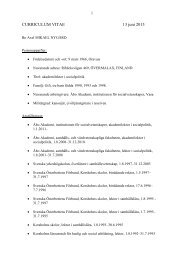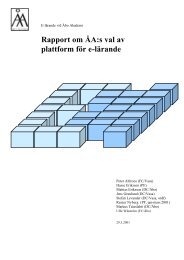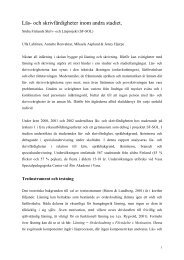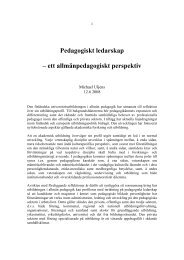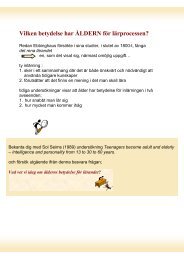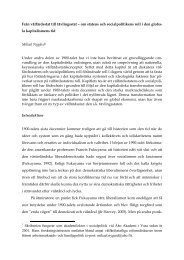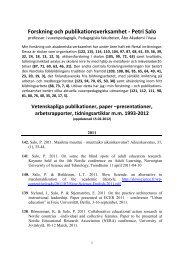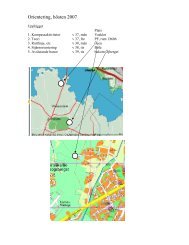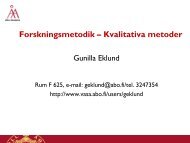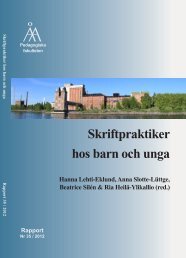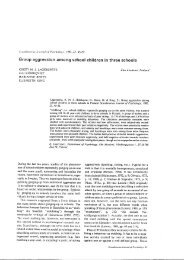Parties, Candidates and Citizens On-Line - Åbo Akademi
Parties, Candidates and Citizens On-Line - Åbo Akademi
Parties, Candidates and Citizens On-Line - Åbo Akademi
You also want an ePaper? Increase the reach of your titles
YUMPU automatically turns print PDFs into web optimized ePapers that Google loves.
Table 5. Comparison of average number of debaters, degree of monopolization <strong>and</strong><br />
average degree of intensity <strong>and</strong> liveliness for the discussion boards on the web<br />
Topic<br />
Aspect Politics Music<br />
X X<br />
Liveliness a) 0.63 0.71<br />
Intensity b) 14.61 30.80<br />
Debaters c) 3.08 4.20<br />
Monopol. d) 1.31 1.54<br />
N 567 859<br />
a) The differences are significant t=5.975 (df=1241) p=.000<br />
b) The differences are significant t=-9.378 (df=1236) p=.000<br />
c) The differences are significant t=-9.381 (df=1406) p=.000<br />
d) The differences are significant t=-6.651 (df=1391) p=.000<br />
The non-political forum achieved significantly higher scores on most indicators. A higher<br />
share of the web portal’s users preferred music over politics, as indicated by the average<br />
number of debaters in Table 5. A further examination revealed that the highest number of<br />
users in any thread was eleven for the political forum <strong>and</strong> 23 for the music forum.<br />
Moreover, the debates on the music discussion board have a higher liveliness <strong>and</strong><br />
intensity than the debates on the political forum. Concerning the degree of<br />
monopolization, however, the political forum is somewhat less monopolized. In general,<br />
though, both discussion boards have a low level of monopolization. In total, the number<br />
of discussion threads on the political discussion board amounts to merely 66 % of the<br />
number of threads on the non-political forum. The findings in Table 5 thus indicate that,<br />
given the same level of accessibility, more citizens chose music over politics. Moreover,<br />
the non-political debates are livelier <strong>and</strong> more intense than the political debate. In<br />
conceptual terms, these findings add support to the motivation-based reinforcement<br />
theory.<br />
7. Summary <strong>and</strong> conclusions<br />
In this study, different aspects of electronic discussion boards have been quantitatively<br />
examined. Two schools of thought, the mobilization theory <strong>and</strong> reinforcement theory,<br />
have been fleshed out both conceptually <strong>and</strong> empirically. However, in retrospect, the<br />
quantitative approach used in the study is associated with certain problems of validity.<br />
Hence, individual-level changes in political engagement have not been studied. With the<br />
applied method, one cannot prove that a previously politically inactive citizen has become<br />
active on-line. Consequently, the findings must be regarded as tentative, as they provide<br />
only an initial mapping of the on-line activity. In future research, survey- or interview data<br />
160



